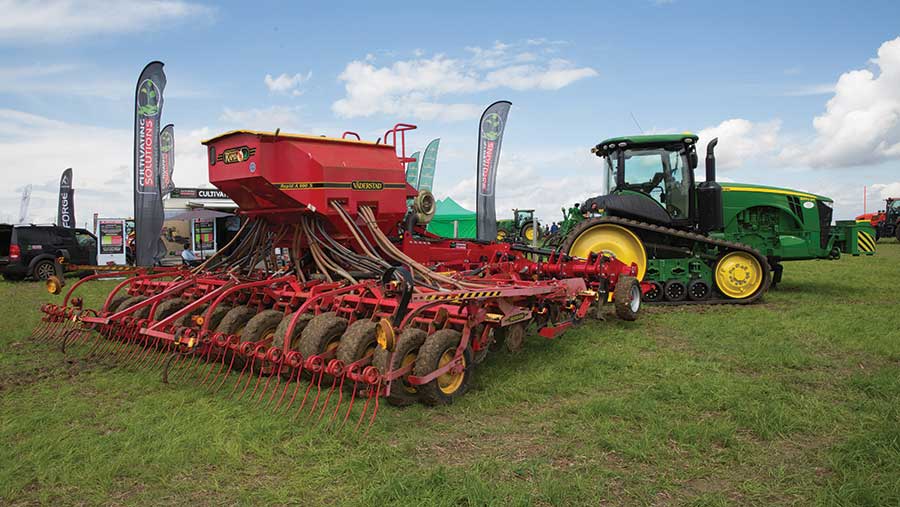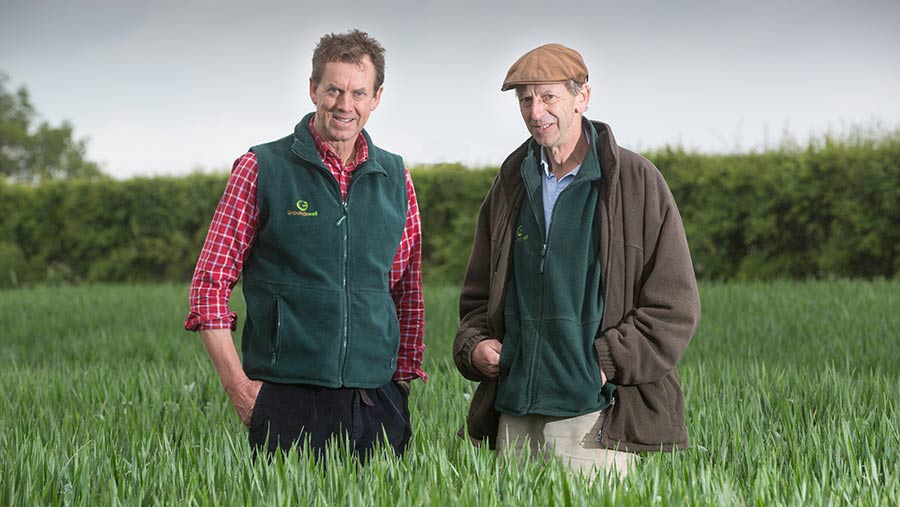Benefits of no-tillage to be revealed at Groundswell
 © Tim Scrivener
© Tim Scrivener The financial benefits of no-tillage farming are set to be outlined by agricultural accountant Gary Markham later this month. They will show that clear savings can be made in agrochemicals, fuel and working capital.
Using the results from some 12 arable no-tillage farms in East Anglia, he has recorded the financial results from their no-till approach compared with conventional farming from the 2017 harvest.
He will be presenting his findings at the second day of the Groundswell event in Hertfordshire in late June, and give his views on whether no-tillage is financially viable.
See also: Farm’s self-imposed insecticide ban leads to healthier crops
Mr Markham has been benchmarking this group of 12, who have been practising no-tillage crop establishment for several years, and comparing them with the 40,000ha of conventionally farmed land which he manages financially.
Variable costs
Big savings in agrochemicals from a no-tillage approach helped bring variable costs down sharply for the group of 12, with the major cost savings coming from a lower spend on herbicides compared with conventional establishment techniques.
Fixed costs were clearly lower, with machinery capital per hectare showing a large reduction due to using a one-pass direct drilling compared to minimal tillage or ploughing methods, with some showing savings of as much as one-third.
Less machinery use led directly to big reductions in fuel used, with the diesel costs of the no-tillage farms showing savings of nearly 50%.
No financial account was taken of the increase in soil health and other environmental benefits which may have come from using no-tillage farming.
Annual event
The hosts for the third year of this annual event will be brothers John and Paul Cherry, who run a 1,000ha farm in north-east Hertfordshire, just south of Baldock.

John and Paul Cherry © Tim Scrivener
The farm gave up ploughing in favour of minimal tillage in the year 2000, prompted by the desire to save on diesel, metal fatigue and time, and then just over a decade later took the plunge and went fully no-tillage.
They saw their chalky boulder clay soils were more workable and earthworm numbers and soil organic matter increased. They also stopped using insecticides three years ago and increased cattle numbers and expanded their herbal leys.
This all chimes with Michael Gove’s enthusiasm for no-tillage techniques and promoting the “public good” that these methods can bring in terms of more sustainable healthy soils, according to the Defra secretary.
Gary Markham is director farms and estates for Land Family Business
Groundswell 2018
The two-day event is focused on no-tillage techniques, soil regeneration and the value of livestock in arable and mixed farming systems. It features high-profile speakers and field-scale direct drilling demonstrations. The third annual event will be held on 27-28 June 2018 at John and Paul Cherry’s Lannock Manor Farm, Weston, Hitchin, Hertfordshire SG4 7EE.

